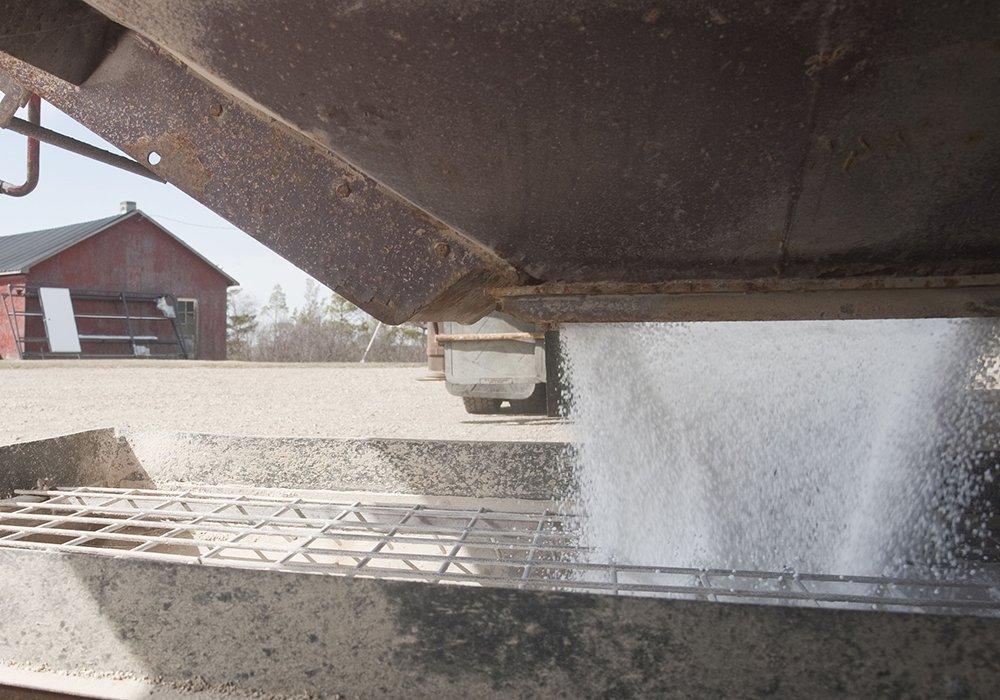Best to lock in fertilizer now, farmers warned

Nitrogen fertilizer prices have exploded due to sky-high natural gas prices, says an industry analyst.
Fertilizer production facilities across Europe have been particularly hard hit by natural gas prices that soared to US$35 to $40 per MMBtu (metric million British thermal unit) last week, due to unusually strong demand for the product.
“It’s not that we lost a plant, we’re losing a region and that’s a big, big deal,” said Josh Linville, fertilizer analyst with StoneX.
At those rates, it is costing European fertilizer manufacturers more than $900 to produce a ton of urea.
“That just doesn’t fly in today’s fertilizer world. They cannot buy the natural gas at the price they are and produce fertilizer and make a profit,” said Linville.
“Without subsidies in place, their only option is to shut down and that’s what we’re seeing and that’s the big driver on a lot of these nitrogen prices around the world.”
He doesn’t know exactly how much nitrogen fertilizer production has been curtailed in Europe and elsewhere but he does know what has happened to prices around the world.
Urea in New Orleans, Louisiana (NOLA), was selling for $720 per tonne as of Oct. 6, up from $411 two months earlier on Aug. 5. The price in Egypt nearly doubled over that same timeframe to $830 from $440.
Energy prices are also on the rise in Asia with reports of blackouts throughout China, which is another key region for nitrogen fertilizer production.
Linville would not be surprised if prices take out the record highs set in 2008, when NOLA urea peaked at $822.50 per tonne on July 24.
“This thing still looks like it has got legs,” he said.
He advises farmers to have a conversation about their fertilizer needs with their crop input provider sooner rather than later.
With prices at today’s levels, they will not be inclined to stockpile any extra product beyond what has been ordered because there will eventually be significant downside price risk when natural gas prices fall and nitrogen fertilizer production returns to normal.
Farmers who order product at the last minute may find themselves out of luck.
“We’ve cried wolf about these scenarios a lot of times,” said Linville.
“This might be the time the wolf actually shows up on the doorstep.”
Growers who use UAN fertilizer have another factor to consider.
CF Industries is following the lead of its competitor Mosaic and has launched an antidumping and countervailing duties complaint against imported fertilizer products.
The company has requested that the U.S. Department of Commerce and the U.S. International Trade Commission investigate imports of urea ammonium nitrate (UAN) solutions from Russia and Trinidad and Tobago.
“For too long, UAN producers in the United States, who are among the most efficient in the world, have competed on an uneven playing field due to dumped and unfairly subsidized imports from Russia and Trinidad,” CF Industries president Tony Will said in a June 30 news release.
“The duties we are seeking will restore fairness to our highly competitive industry and help ensure that American UAN producers remain a reliable source of fertilizers for American farmers for years to come.”
On Aug. 13, the U.S. Trade Commission announced its preliminary ruling that there is a reasonable indication that imports from the two countries materially injure the U.S. UAN industry.
As a result, the U.S. Department of Commerce said it will be launching its own investigations of imports.
If both agencies make final determinations in favour of CF Industries, then the Department of Commerce can impose duties equal to the level of dumping and unfair subsidies from Russia and Trinidad and Tobago.
The countervailing duties would remain in place for five years.
CF Industries owns half of the 16.6 million tonnes of UAN production capacity in the U.S. and would benefit the most from duties placed on its competitors.
The U.S. imported 2.9 million tonnes of the product in 2019-20.
Linville said Russian product has been flooding into the U.S. market ever since it was forced out of the European Union due to countervailing duties in that market.
It got to the point where CF Industries dropped its price to $120 per tonne last year to stave off imports.
“They were pushing them out with price,” he said.
But that was unsustainable and the company decided to follow Mosaic’s lead instead.
Mosaic recently won an antidumping case involving phosphate imports from Morocco and Russia. That resulted in countervailing duties ranging from nine to 47 percent on imported product starting in March 2021.
The duties have contributed to rising phosphate prices in the North American market.
DTN, a U.S. agricultural information and data company, reports that monoammonium phosphate prices in the U.S. are 74 percent higher than a year ago while diammonium phosphate prices are 63 percent higher.
DTN also noted that U.S. buyers have recently returned to buying product from Russia and Morocco because the price gap has become so large they can still make a profit even after paying the duties.
Mosaic’s phosphate sales for August were 76 percent higher than a year ago despite selling 10 percent less product.
Linville said the upshot for UAN if the final rulings go in CF’s favour is that it will start selling at a premium to urea once again.
But urea will still be the driver of nitrogen fertilizer prices and right now the natural gas issue is by far the bigger factor in those markets.
Source: www.producer.com

